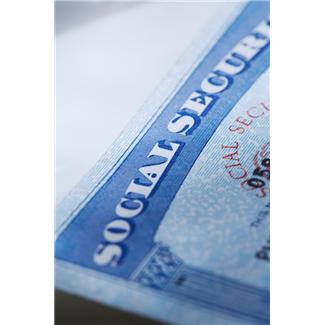Understanding Who Bears Responsibility for the Trust Fund Recovery Penalty
 The Trust Fund Recovery Penalty (TFRP) can wreak severe economic havoc on a business that owes the penalty. The penalty can also potentially inflict substantial financial harm on some individuals within the business, if the company does not pay the penalty owed. When a company fails to pay a TFRP assessed against it, the Internal Revenue Service will follow up with an aggressive pursuit of the individuals identified as “responsible persons” for the business, who then become individually liable for paying the penalty.
The Trust Fund Recovery Penalty (TFRP) can wreak severe economic havoc on a business that owes the penalty. The penalty can also potentially inflict substantial financial harm on some individuals within the business, if the company does not pay the penalty owed. When a company fails to pay a TFRP assessed against it, the Internal Revenue Service will follow up with an aggressive pursuit of the individuals identified as “responsible persons” for the business, who then become individually liable for paying the penalty.
Various cases throughout recent decades have clarified several aspects of this status, including that the IRS may pursue multiple responsible persons in a single entity, and need not pursue only the most responsible person, and that a person may be liable even if a superior officer in the business ordered him/her not to pay. Furthermore, the IRS will analyze several criteria to deduce responsible persons, including: the person’s check-signing authority, the person’s title or office, the person’s amount of ownership, the person’s degree of decision-making power and the extent of authority to hire and/or fire employees.
Generally speaking, the IRS defines a “responsible person” as someone who either accomplishes, or directs others in, the collecting, accounting and paying of payroll withholding taxes. The central aspect of this analysis is the extent of the person’s control over the business. For example, an accountant who can pay no bills without the express approval and authorization of the entity’s treasurer lacks a sufficient degree of control over the business’s finances to qualify as a responsible person. However, an executive vice president may qualify as a responsible person, due to his degree of control over the entity. This status remains in place, and the executive vice president remains responsible for the penalty, even if his chief executive officer orders him not to pay the payroll withholding taxes. The IRS casts a wide net in seeking responsible persons. A responsible person may be: a corporate officer, an employee of the entity, a member of the partnership, a shareholder, another corporation that controls the business or even a payroll service provider or professional employer organization. It is important to note, however, that using a third-party payroll service provider or professional employer organization does not get a corporation’s officers off the hook. If an officer, director or employee has sufficient control to qualify as a responsible person, that person remains so even if the entity uses a third-party payroll service provider or professional employer organization.
A business’s failure to make its employee withholding tax payments is a serious matter. Whether you have a payroll tax problem, seek to avoid problems, or desire to avoid bearing the financial obligations for your employer’s debts, consult the tax attorneys at Samuel C. Berger, P.C. and CPAs at S.C. Berger, P.C. Our attorneys have years of experience advising businesses throughout New York and New Jersey to assist them with ensuring that they are in compliance with all rules regarding the payment of their payroll taxes. To consult our attorneys and CPAs, contact us online or call (201) 587-1500 or (212) 380-8117.
More Blog Posts:
Landlords Have Self-Help Options for Addressing Non-paying NJ Tenants, New York & New Jersey Real Estate Lawyer Blog, March 11, 2013
When Might a Corporate Officer Owe a Fiduciary Duty to a Corporate Creditor? – Workforce Solutions v. Urban Services of America, New York & New Jersey Business Lawyer Blog, Jan. 11, 2013
Controversy Surrounds the J-1 Exchange Visitor Visa “Summer Work Travel” Program, New York & New Jersey Immigration Lawyer Blog, July 5, 2012
 Hackensack, New Jersey Trust Fund Recovery Penalty Attorney Samuel C Berger, PC Home
Hackensack, New Jersey Trust Fund Recovery Penalty Attorney Samuel C Berger, PC Home



